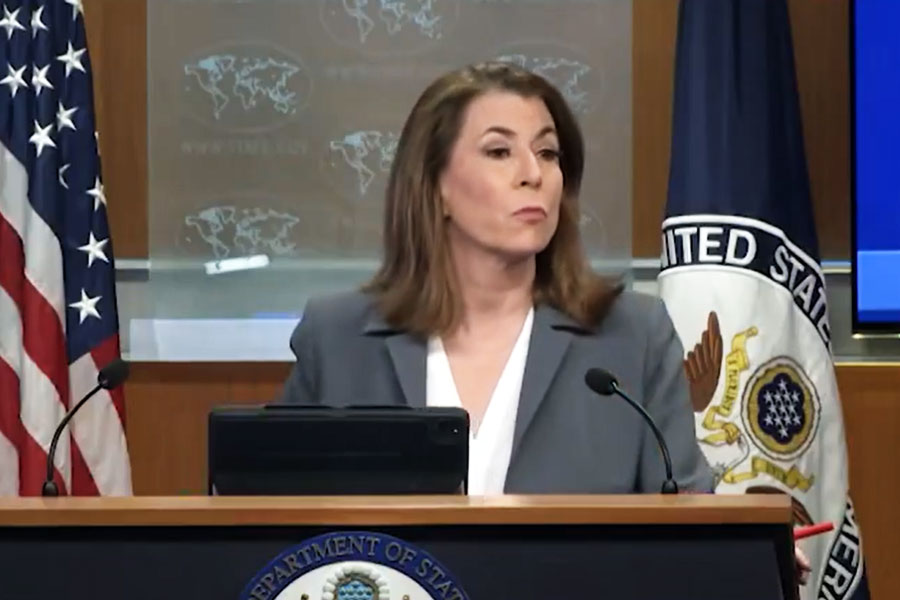 |
| Bhaktabala BEd College in Nadia |
Calcutta, June 24: Over 80 of Bengal’s 200-odd BEd colleges have come up in the past three years, keeping pace with the Mamata Banerjee government’s thrust on job creation through appointment of schoolteachers.
While the intention behind setting up these institutes, which train teachers how to be more effective in the classroom, cannot be faulted, the manner in which they have mushroomed and got affiliation from universities leaves room for questions, a senior education department official said.
“The BEd colleges are functioning without any checks on the quality of education they are providing or the manner in which they are admitting students,” the official said.
Both problems came to the fore with the unfolding of the cash-for-seats scam at Bhaktabala BEd College in Nadia’s Chapra, where 39 students were admitted beyond the sanctioned strength of 100 allegedly against payment of amounts ranging between Rs 1.25 lakh and Rs 1.7 lakh.
The cat tumbled out of the bag when the 39 students did not get registration from Kalyani University to appear for the final exam, scheduled for July 7.
That basic academic discipline was not maintained in the Chapra institute became clear when this correspondent found during a visit to the campus that the college authorities were not even maintaining a students’ attendance register.
The institute, which has been de-affiliated following the scandal, is one of the 40 BEd colleges Kalyani University has given affiliation to in the 2013-14 academic year. In the past three years, Calcutta University has given affiliation to 12 private BEd colleges and Vidyasagar University, to eight.
“These BEd colleges come under the National Council for Teachers’ Education (NCTE). But since the apex body cannot always keep tabs on these institutes, the onus of ensuring quality is on the affiliating university and the state higher education department. Everyone knows proper checks are not done. Had there been checks, Kalyani University would have come to know about the excess students long ago,” the education department official said.
The official wondered how the university gave affiliation to 40 colleges in less than three years.
Senior education department officials The Telegraph spoke to said universities were under pressure to recognise BEd colleges because promoters were “desperate” to “cash in” on the rush to pursue the degree, mandatory for a teacher’s job.
Since the change of guard in Bengal, the government has recruited over 30,000 assistant schoolteachers from a pool of 7.5 lakh aspirants and 10,000 primary schoolteachers from among 17 lakh applicants.
The fact that around 40 per cent of Bengal’s BEd colleges have come up in less than three years is a pointer to the demand for the degree.
“A teacher’s job seems to be the only hope for educated youths in Bengal because of the lack of industry and poor employment opportunities in other sectors. So a BEd degree has become the most sought after qualification for lakhs of unemployed youths. This has resulted in the mushrooming of BEd colleges,” an official said.
Comments of Amar Biswas, the secretary of the Bhaktabala BEd College governing body, makes it clear that alleged political intervention plays a key role in the affiliation process.
“Tanmay Acharya (the general secretary of the Kalyani University union led by Trinamul Chhatra Parishad) had threatened me that if excess students were not admitted to my college, getting affiliation could get uncertain. I got scared following his clout at the university and admitted 39 students beyond the sanctioned strength,” Biswas had told this newspaper.
Sources in the education sector said the reason behind Biswas allowing the excess students could be the lucrative nature of the business proposition.
An official said that unlike private engineering colleges — for which the entrepreneur has to spend heavily on equipment to build laboratories — a BEd college could be set up with a much lower investment. Only land and a building are required to start a BEd college.
“The owner can recover the cost within a maximum of two years. No other business (related to the education sector) can yield such high returns,” the official said.
Biswas had told this newspaper that the investment to set up Bhaktabala BEd College was Rs 40 lakh. With a sanctioned capacity of 100 students and an annual course of fee of Rs 40,000, he mopped up the invested amount in a year.
“If he had to spend around Rs 10 to Rs 15 lakh in running the institute, he could recover the total investment and also make a decent profit in two years. This is the reason why so many people have set up BEd colleges in recent years,” a source in the higher education department said.
The profitability of the business has resulted in an “admission racket” with the “involvement” of a section of politicians, university teachers and officials and college owners, alleged former Uttaparpara CPM MLA Srutinath Praharaj.
“I know a BEd college owner in South 24-Parganas. He sold his fishing trawlers to set up the college as he considers it to be a business with high returns and low investment,” Praharaj said.
The NCTE gives the preliminary affiliation to a BEd college and asks the affiliating university to take stock of infrastructure facilities and give the second round of recognition.
Praharaj admitted that the mushrooming of private BEd colleges started during the Left regime but added that it assumed “alarming proportions” in the past three years.










